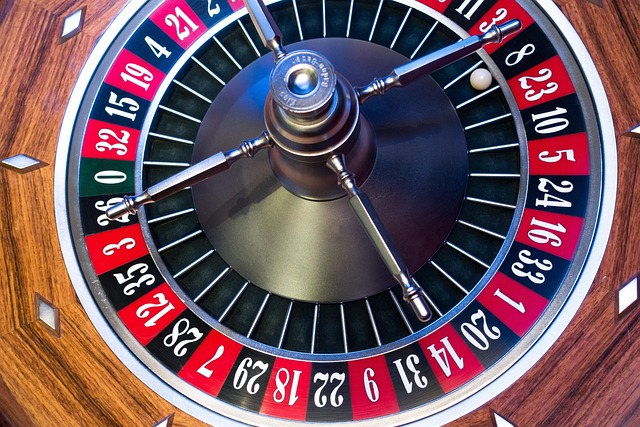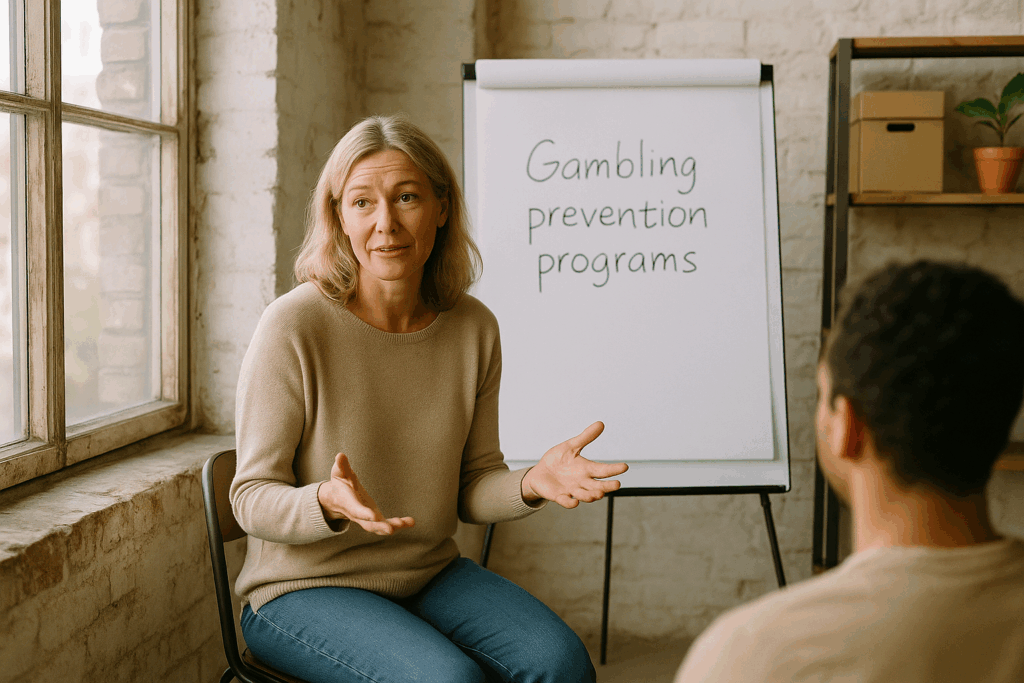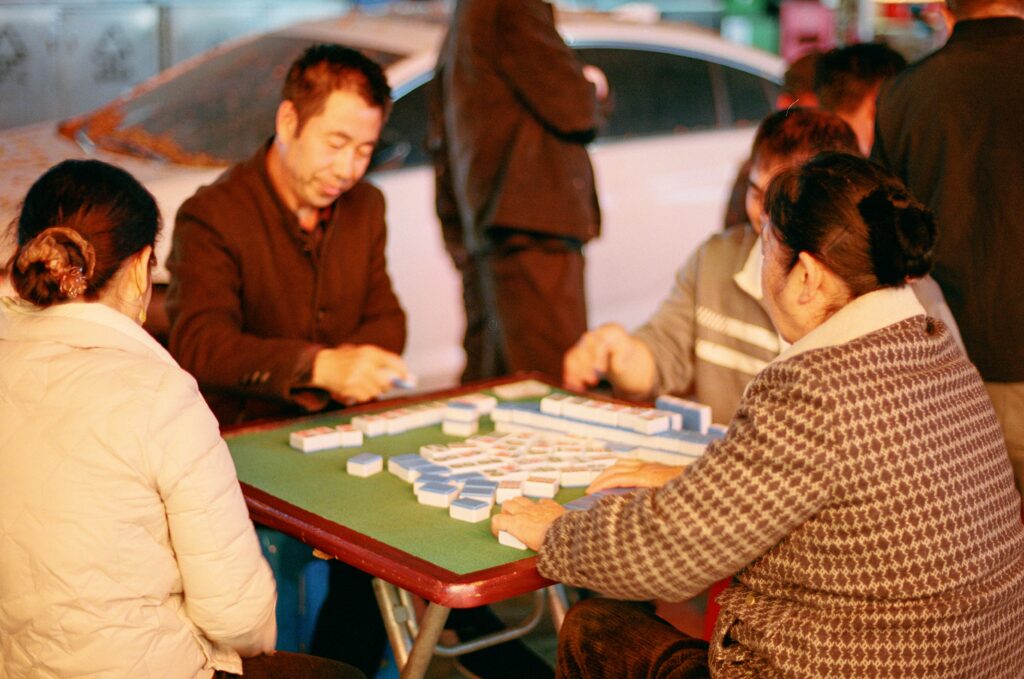Why Setting Limits Matters
Gambling is entertainment—until it isn’t. The line between casual fun and real risk is thinner than most people think. A few extra bets, a few extra minutes, and suddenly it’s costing more than just money. That’s why setting limits isn’t just smart—it’s necessary.
Think of limits as guardrails. They protect your wallet from unexpected damage, your time from being drained, and your mental health from a slow slide into stress. When you know exactly how much you’re willing to spend, how long you’re willing to play, and when to walk away, you’re actually taking control.
Sustainable gambling isn’t about avoiding all risk. It’s about managing it with discipline. Limits allow you to keep gambling in its place—something you enjoy, not something that owns you. The long game is simple: stay in control, and you can keep playing without paying the price.
Step 1: Define Your Gambling Budget
Before placing a single bet, it’s essential to separate your gambling money from your everyday financial responsibilities. This isn’t just about staying within your means—it’s about protecting your peace of mind.
Stick to Disposable Income Only
Gambling should never affect your ability to pay for essentials like:
- Rent or mortgage payments
- Utilities and groceries
- Transportation and healthcare
Only bet with money you can afford to lose—think of it like budgeting for a hobby or a night out.
Choose Your Budget Period: Monthly vs. Weekly
You’ll need to decide what kind of budgeting cycle works best for your lifestyle:
- Monthly Budgets: Great for those who get paid once a month and have experience managing long-term expenses.
- Weekly Budgets: Offers tighter control and quicker course-correction if things go off track.
Whichever you use, consistency is key.
Track Your Spending Without the Stress
You don’t need complex spreadsheets to stay on top of your gambling budget. Use simple tools to keep things easy and transparent:
- Built-in trackers on most gambling platforms
- Budgeting apps like Mint, YNAB (You Need A Budget), or personal bank alerts
- A basic notebook if you prefer old-school methods
The goal? Know where your money goes—and stay in charge of it every step of the way.
Step 2: Set Clear Deposit and Wager Limits
Good intentions don’t mean much when the adrenaline kicks in. That’s why setting hard deposit and wager limits—per day, week, and month—is critical. Pick numbers that make sense for your actual budget, not your wishlist. Think of it like fuel: once it’s gone, you don’t refill until the clock resets.
Most licensed gambling platforms now make this easy. You can set limits from your account settings—sometimes even during sign-up. Choose your caps, hit save, and the system holds the line for you. Some sites even offer reminders and automatic alerts when you’re getting close. Use them.
And then there’s the “cooling off” feature—basically a self-imposed timeout. If things start heating up too fast, this tool forces you to pause. It works because it creates just enough distance for logic to catch up with impulse. Whether it’s a 24-hour breather or a full-week break, think of it as a pressure release valve. The goal isn’t to walk away forever—it’s to walk away with control.
Step 3: Time Limits Are Just as Important
Money gets the spotlight when people talk about gambling, but time is the stealth cost. You can’t win back an hour the way you can claw back a few lost dollars. Time spirals are real—what starts as a quick ten-minute spin can turn into a two-hour blur if you’re not paying attention. That kind of detour eats into sleep, work, relationships, workouts—your entire routine.
The fix? Treat gambling like you would a gym session or any other habit with boundaries. Set a specific time window before you begin. Add it to your calendar if that helps. Once your window’s up, walk away, no negotiations. A habit without a clock becomes a trap.
Pay attention to red flags: skipping meals, staying up too late, forgetting appointments, losing track of days. If you’re constantly surprised by how long you’ve been playing, your sense of time is already slipping. Think of time limits as brakes, not buzzkills. They give you control—and without that, you’re just chasing shadows.
Step 4: Learn to Walk Away—Win or Lose
Knowing when to stop isn’t just smart—it’s your edge. Stop-loss and stop-win rules are your exit ramps. Decide ahead of time how much you’re willing to lose and how much profit is enough. Hit either number, and you walk. No debate. No gut calls.
Most people get tripped up by emotion. You lose a few rounds and start chasing. Or you’re up big and feel untouchable—so you keep pushing until it’s all gone. That’s how good sessions turn into disasters. The solution? A system that runs without your feelings in charge. Set firm rules and follow them like a checklist, not a vibe.
And when your session ends, it ends. That means no “just one more spin” or dipping back in because you feel like luck owes you. It doesn’t. Shut it down, step back, and do something else. Walking away is a skill, and the more you practice it, the more control you keep.
Step 5: Use Platform Tools and Self-Exclusion Safely
When it comes to pulling back, most gambling platforms give you a few built-in tools. The two big ones are time-outs and self-exclusion. They’re similar, but not the same.
Time-outs are short breaks—usually 24 hours to a few weeks. You lock yourself out temporarily, give your head space to cool off, and come back when things feel balanced again. Think of it like hitting pause after a losing streak or an adrenaline-fueled win.
Self-exclusion is the next level. This is when you block access to your account for longer periods—six months, a year, sometimes even permanently. It’s not a decision you take lightly. Most platforms won’t let you reverse it once it’s in place. It’s a line in the sand.
There are also voluntary vs. mandatory blocks. Voluntary means you make the call. Mandatory usually happens when the platform flags risky behavior or gets signals from third-party watchdogs. If it reaches that point, it’s a serious sign to reassess your habits.
Knowing when it’s time to take a longer break comes down to one question: are you still in control? If gambling stops feeling like entertainment and starts running you—money, mood, sleep—you don’t need a win. You need a reset. The good news is, these tools are built to help, not punish. Use them before problems stack up.
Advanced Tip: Include a Mental Health Check-In
Even with all the right limits in place, it’s possible to slide into habits that aren’t healthy. One of the clearest signs that gambling is heading into addictive territory is when it stops feeling like entertainment and starts feeling like a need—something that fills space, calms anxiety, or replaces other parts of life.
Pay attention to your behavior. Are you gambling to escape stress? Do you feel irritated or restless when you can’t play? Are you lying (even a little) about how much you’ve spent or how often you’re gambling? These are red flags worth noting.
Set one day every month to be brutally honest with yourself. Check your spending. Review your screen time. Ask yourself how you felt before, during, and after each session. And if it’s getting harder to walk away—even for a day—it might be time to reassess.
For more guidance on what to look for, read: Identifying Early Signs of Gambling Addiction.
Final Word: It’s Not About Stopping—It’s About Control
Limits aren’t there to restrict your fun. They’re there to make sure the fun doesn’t flip into chaos. Think of them like seatbelts—not glamorous, but if you’re going to speed down the highway, you’d better wear one. Placing limits isn’t about weakness. It’s about building smart strategies that shield your wallet and your peace of mind.
You can still enjoy the thrill. Place a bet, follow your team, hit the slots—all without letting gambling take the wheel. Limits help you keep it in the background, not at the center of your life.
Ultimately, it’s a mindset. Check in with your habits. Be honest about your triggers. Gambling isn’t broken—you just need to treat it like fire: useful, but only when properly contained.


 Edna Jaggerlic contributes to mediagamblesaga with a sharp focus on digital media and the evolving world of gambling technology. Her writing breaks down industry shifts and innovations, making complex trends clear and accessible to readers.
Edna Jaggerlic contributes to mediagamblesaga with a sharp focus on digital media and the evolving world of gambling technology. Her writing breaks down industry shifts and innovations, making complex trends clear and accessible to readers.

